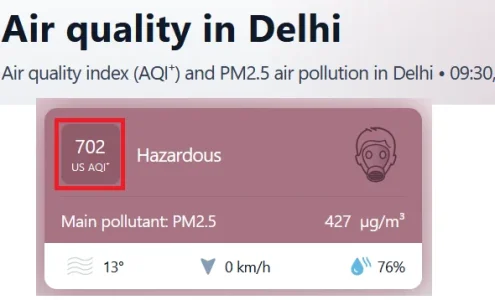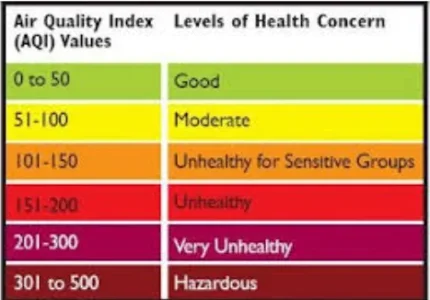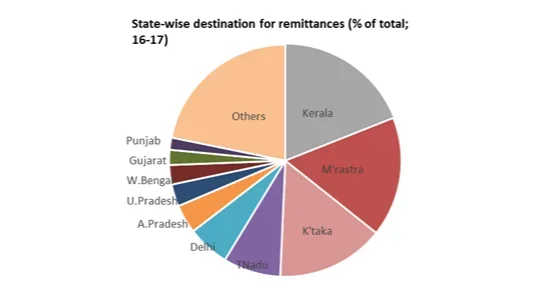- Joined
- Jul 7, 2024
- Messages
- 1,338
- Likes
- 4,522
dont tell me u r same "british indian"Lol. Bro, seriously? Lmao. Hahaha. You are really delusional if you think this is true.
edit: Btw, whatever crap you believe doesn't matter. Peoples' perceptions world over is that India is unsafe for women and also an unclean country.
I asked Grok to compile data. Don't give me "Elon musk is anti India" or whatever. You all use twitter.
----
What's the objective data on sexual assault reporting on India? Is it accurate or under reported?
The objective data on sexual assault reporting in India primarily comes from the National Crime Records Bureau (NCRB), an agency under the Ministry of Home Affairs that compiles crime statistics. Here's an analysis based on available data:
Reported Statistics:
- Number of Cases:
- In 2021, NCRB reported 31,677 cases of rape in India, translating to an average of 86 rape cases daily.
- The total number of crimes against women was 428,278 cases, with a rate of 64.5 crimes per lakh (100,000) population.
- Trends Over Time:
- The number of reported rape cases has shown an increasing trend over the years, with exceptions like the drop during the lockdown year of 2020 due to the COVID-19 pandemic.
- From 2001 to 2018, rape-related crimes increased by 70.7%, from 11.6 to 19.8 per 100,000 women and girls.
- State and City Variations:
- States like Rajasthan, Uttar Pradesh, and Madhya Pradesh consistently report high numbers. Delhi, the capital, often has one of the highest rape rates among metropolitan cities.
Accuracy and Under-Reporting:
- Under-Reporting:
- Numerous studies and reports suggest that sexual assault in India is significantly under-reported. Here are key reasons and statistics:
- Cultural Stigma: Victims often face social stigma, shame, or fear of family reaction, deterring them from reporting. Over 80% of women who have experienced sexual violence never tell anyone, according to the National Family Health Survey.
- Fear of Retaliation: Fear of reprisal from the perpetrator or their community is a major deterrent.
- Police and Judicial System: Lack of faith in the police response, potential for victim blaming, and low conviction rates (around 27-30%) discourage reporting. A notable percentage of cases are closed without trial due to insufficient evidence or lack of follow-through.
- NCRB's Own Estimation: An older NCRB report from 2006 mentioned that about 71% of rape crimes go unreported. This figure might have changed due to increased awareness and legal reforms, but under-reporting remains a significant issue.
- External Assessments:
- The UN and various NGOs estimate that globally, including in India, only a small fraction of sexual assaults are reported. The UN has suggested that worldwide, only about 11% of rape cases are reported.
- Legal and Definition Challenges:
- The legal definition of rape in India is broader than in some countries, including non-penetrative sexual assaults, which might affect comparative statistics. However, this does not compensate for the large number of unreported cases.
Conclusion:
- While the NCRB data provides valuable insights into the extent of reported sexual assaults, it's widely accepted that these numbers are just the tip of the iceberg. The actual incidence of sexual assault in India is likely much higher due to under-reporting influenced by cultural, social, and systemic factors.
- Efforts like increased awareness, legal reforms post the 2012 Delhi gang rape case, and the establishment of fast-track courts have aimed to improve reporting and conviction rates, but significant challenges remain in ensuring accurate and comprehensive data on sexual assault in India.
-----
How do foreign tourists feel about India? Particularly women? Do they feel safe or do they anecdotally report that men stare and behave strange with them?
Based on various sources including travel forums, social media, travel blogs, and travel advisories, here's an overview of how foreign tourists, particularly women, feel about traveling in India:
General Sentiment:
- Diverse Experiences: Many foreign tourists are captivated by India's rich culture, history, landscapes, and hospitality, describing it as an "unforgettable" experience. However, opinions on safety can vary widely.
- Safety Concerns:
- Men Staring and Harassment: There are numerous anecdotal reports of men staring, taking unsolicited photos, or engaging in what's known locally as "eve-teasing" (a euphemism for sexual harassment). This behavior is often cited as unsettling for female tourists.
- Sexual Harassment: Many women report experiencing various forms of sexual harassment, ranging from verbal comments to physical touching or groping, particularly in crowded places like markets, public transport, and tourist sites.
- Safety Perception: The perception of safety varies by region. Some tourists feel safer in cities like Mumbai or the tourist-friendly areas of Kerala and Goa, compared to places like Delhi or parts of Uttar Pradesh, where reports of harassment or crime are more common.
Anecdotal Reports:
- From Women Travelers:
- Many women express that they've had to adapt their behavior, like dressing conservatively, avoiding travel alone at night, or even hiring personal security in extreme cases, to feel safer.
- There's a common theme of needing to be constantly vigilant, which can detract from the travel experience.
- Some women report positive interactions with locals, especially when traveling with a guide or in groups, suggesting that the experience can be greatly influenced by how one travels.
- Men's Experiences: While men might not report the same level of harassment, they also mention being subjected to staring or scam attempts, though generally, they feel less threatened.
Specific Sources:
- Travel Advisories: Many countries issue travel advisories for India, particularly warning women about the risks of sexual harassment and assault. These advisories often highlight areas to avoid and precautions to take.
- Social Media and Blogs (as reflected in posts found on X):
- There are posts where travelers express reluctance to return due to negative encounters, especially women who have faced harassment.
- Conversely, some travelers share strategies they used to navigate India safely, emphasizing the importance of local knowledge and cultural sensitivity.
- Travel Forums (e.g., Tripadvisor): Discussions often include mixed reviews. Some female travelers report feeling safe and well-cared for, especially when adhering to local customs, while others recount disturbing experiences that have made them wary.
Conclusion:
- Safety as a Spectrum: The feeling of safety in India for foreign tourists, especially women, exists on a spectrum. It's influenced by one's travel style, regions visited, and personal experiences.
- Preparation and Precaution: Many travelers suggest that with proper preparation, understanding of local customs, and taking safety precautions, one can have a positive experience in India. However, the risk of harassment remains a significant concern that shapes many travelers' perceptions and experiences.
- Cultural Understanding: Foreign tourists often recommend learning about and respecting Indian culture to mitigate some of the unwanted attention, though this doesn't eliminate the risk of harassment entirely.
In summary, while many foreign tourists, including women, do enjoy their time in India, there's a prevalent concern regarding personal safety, particularly due to the reported behavior of staring and harassment by men.
----
Looks like it's a mixed bag, but the perception is substantially worse than this. Nobody gives a shit about other countries. The discussion is centered on India. To change perception means to change behavior. Idk if Indians can do this.
now first thing i never said anything related to indian datas (not farzi ones). i can throw same type of data for "any country" if u want. it will take time, but tell me. i will do it for u
secondly show me data of perception/survey of people, which said they hv bad feeling/thoughts about india. atleast provide 1% world population opinion, i mean 8 billion world population 1% is 80 million. than i will think about it
do u british (indian
Last edited:





